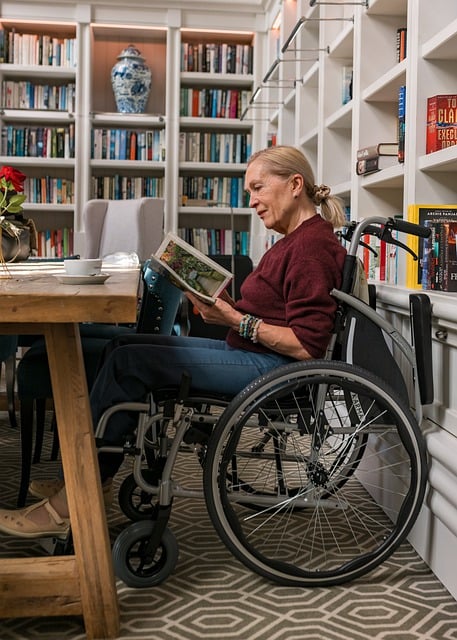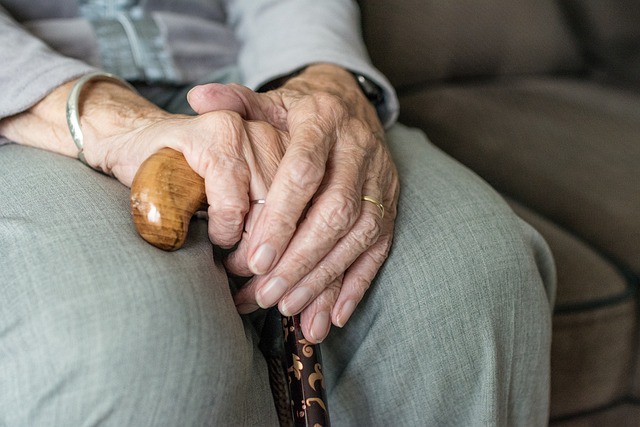Elderly companion services have undergone a significant transformation with the integration of advanced technology, including sensors and wearables for health monitoring, AI for personalized interactions, and smart home automation to streamline daily tasks. These innovations enhance the safety and independence of seniors while providing real-time alerts to caregivers. The services are tailored to individual preferences and routines, combating loneliness and ensuring assistance is always accessible. The best providers offer comprehensive support, including medication management, everyday task help, and social engagement opportunities, all within the familiar and secure environment of home. When selecting a provider, it's crucial to consider their monitoring capabilities, emergency response systems, coordination with medical professionals for wellness checks, and the qualifications of their staff. These factors ensure that your loved one receives top-notch care, promoting not just safety and comfort but also a fulfilling quality of life.
Exploring the landscape of in-home health monitoring, this article sheds light on elderly companion services, a vital aspect of at-home care. With technology as the cornerstone, we delve into how these services are evolving to provide unparalleled assistance and companionship to seniors. A comparative analysis of leading service providers will guide readers through the essential features and considerations when selecting the best option for their needs. Join us as we navigate the nuances of these critical services, ensuring a safer, more independent life for our aging population.
- Navigating the Nuances of Elderly Companion Services for At-Home Health Monitoring
- The Role of Technology in Enhancing Elderly Companion Services
- Comparing Elderly Companion Service Providers: Key Considerations and Features
Navigating the Nuances of Elderly Companion Services for At-Home Health Monitoring

Elderly companion services have become increasingly sophisticated, offering tailored in-home health monitoring assistance to ensure seniors receive comprehensive care. These services are designed to provide a supportive presence within the comfort of one’s own home, addressing both the physical and emotional well-being of elderly individuals. With advancements in wearable technology and remote monitoring devices, companion services can now track vital signs, medication adherence, and daily activities, alerting caregivers or family members to any changes that may indicate a need for medical intervention. This real-time data allows for proactive rather than reactive healthcare management, potentially preventing hospital readmissions and improving overall health outcomes. Additionally, the integration of artificial intelligence in companion services enables personalized interaction, offering reminders, assistance with everyday tasks, and even companionship through engaging conversations or entertainment options. The nuances of these services are critical to consider; they must balance technological sophistication with user-friendliness to cater to the diverse needs and preferences of elderly individuals. By doing so, companion services not only enhance health monitoring but also contribute significantly to maintaining the dignity and independence of seniors in their own homes.
The Role of Technology in Enhancing Elderly Companion Services

In recent years, the integration of technology in elderly companion services has significantly transformed the way seniors receive care and support at home. Advanced sensors and wearable devices now enable real-time monitoring of vital signs, detecting anomalies that could indicate health issues. These technologies provide a safety net for older adults, allowing them to maintain independence while assuring caregivers and family members of their well-being. Moreover, the integration of AI-driven platforms into elderly companion services facilitates personalized interaction, offering companionship that adapts to individual preferences and routines. This not only helps in alleviating loneliness but also ensures that help is readily available should it be needed. The use of smart home technology further enhances the living conditions for seniors by automating tasks, optimizing their home environment for comfort, safety, and convenience. As such, technology’s role in augmenting elderly companion services is pivotal, offering a blend of companionship, security, and support tailored to the unique needs of the aging population.
Comparing Elderly Companion Service Providers: Key Considerations and Features

When comparing elderly companion service providers, it’s crucial to assess the range of services offered and their suitability for your loved one’s specific needs. Top-tier providers specialize in delivering personalized care that aligns with the elderly’s health status, daily routines, and preferences. Key considerations include the availability of 24/7 monitoring, emergency response systems, and the ability to coordinate with healthcare professionals for regular check-ins and updates on the individual’s well-being. Additionally, look for providers that offer a comprehensive package of services encompassing medication management, assistance with daily activities, and social engagement opportunities to maintain an active and fulfilling lifestyle. The integration of user-friendly technology within these services enhances safety and independence, allowing seniors to remain in the comfort of their own homes while receiving the necessary support to age gracefully. Prospective clients should evaluate the provider’s staff qualifications, including the training and background checks conducted on caregivers, to ensure the highest standard of care is provided at all times. By carefully considering these factors, you can select an elderly companion service that offers peace of mind for both the senior and their family.
In conclusion, elderly companion services have evolved significantly, leveraging cutting-edge technology to offer robust at-home health monitoring solutions. These services not only ensure safety and wellness management but also provide companionship, a critical aspect for the elderly who value independence alongside support. As highlighted throughout this article, choosing the right service provider requires careful consideration of key features such as real-time health data tracking, emergency response capabilities, and personalized care plans. By navigating the nuances of these services, families can find peace of mind, knowing their loved ones are in capable hands. It’s clear that companion services represent a vital component in the healthcare ecosystem for seniors, blending technology with human touch to enhance the quality of life for those in need.






